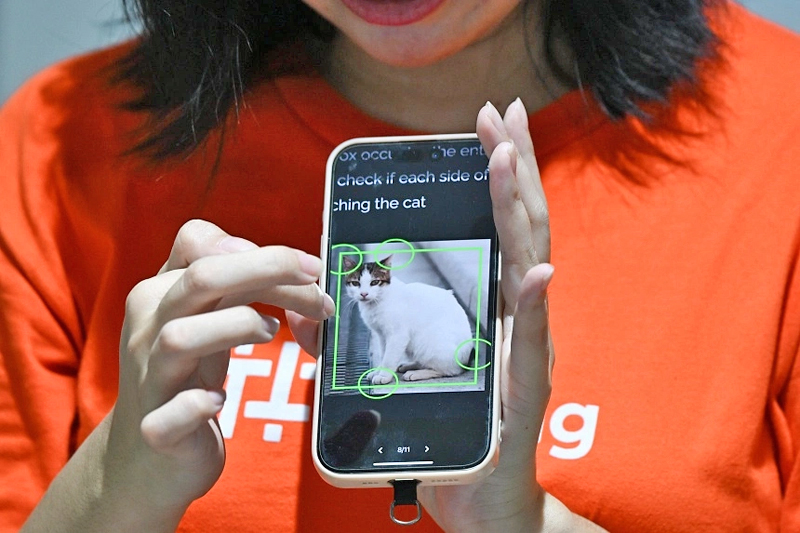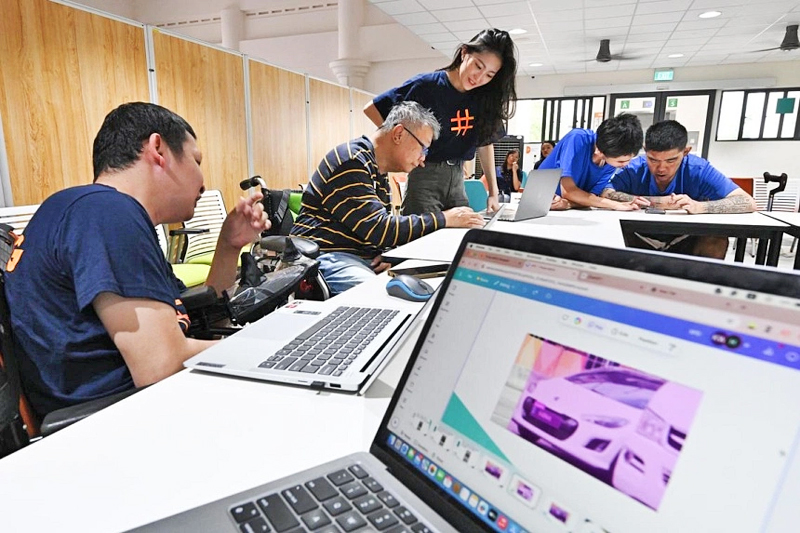SINGAPORE – A Singaporean start-up is now turning to the public to set up a pool of data interns, who earn ‘pocket money’ by performing tasks such as recording their voices and labeling pictures.
Anyone with a smartphone – even if they’re not tech savvy – can perform tasks using the Tictag app, earning a few cents, or even a few dollars each time.
The collected data is used to train artificial intelligence (AI) voice assistants and image recognition technologies in speech and language, security monitoring, and computer vision.
Since its launch in 2021, the app has received more than 20,000 users on Android and iOS platforms, and Tictag has paid around $24,000, according to Kevin Quah, CEO and co-founder of Tagteam Technologies, the company behind the Tictag app.
The startup helps tech firms collect data, label data sets and train AI models. For example, some of Tagteam’s clients use AI-powered camera systems to identify whether their workers are wearing protective equipment or entering dangerous zones. Other customers use voice recordings to train AI systems to estimate a user’s age based on their voice, for age verification and other purposes.



Training data has been the job of data scientists and annotators. However, with a shortage of manpower to meet the growing demand for AI, Tictag’s creators are engaging everyday users through the app, Quah said in an interview with The Straits Times at the Tagteam office in Chinatown.
Founded in 2019, the company works with technology companies, either directly or through outsourcing vendors. It is now one of the startups recognized by the Infocomm Media Development Authority (IMDA), which allows it to do business with government agencies and large companies.
As of last July, the company had received an investment of US$3 million, said Quah.
Tictag users are given simple tasks, such as recording spoken words in Hokkien or saying Bixby – the name of Samsung’s AI assistant on its mobile devices – with a different volume.
These tasks often involve explanatory images, which require the user to label components in the image, such as a car brand logo, or label the color of an item. This provides the AI with accurate training data to identify images.
The application also checks user answers based on samples from various users to ensure consistency and identify any inaccuracies.
In addition to human checkers, the platform’s software can also filter out answers that are clearly wrong.
More time-consuming tasks include taking photos of wildlife or uploading photos of e-commerce receipts to train AI models in understanding receipts, such as in claims processing.
Users earn digital coins that can be redeemed for supermarket vouchers, transport vouchers, or cash transferred to their bank account.
Quah said app users can easily earn rewards worth several dollars by completing tasks.
Tagteam has also involved more than 120 users from marginalized communities in Singapore and Asia as data annotations and examiners to verify user answers.
By partnering with at least 14 social organizations in the region, the company provides opportunities for consumers such as low-income seniors and individuals with autism and disabilities to earn extra pocket money, said Quah.
Mr Low Junin, a trainee at the SPD Ability Centre, a disability support organization working with Tagteam, said he has earned more than US$100 since 2023 by completing tasks in his spare time.
The app offered a way for him to familiarize himself with data jobs, said Low, 33, who hopes to find work in the sector.
Freelance graphic designer Allan Tan, 55, uses the app casually as a way to earn extra pocket money, and has earned around US$100 so far.
The tasks usually take around five to 15 minutes, allowing him to earn up to US$5 for each completed task, Tan said.
“This application has helped me learn something new and provides side income, which is an advantage,” he said.
To encourage users to complete tasks seriously, coins are awarded based on the accuracy of completed tasks, Quah said. Users who complete 80 percent or more of the tasks correctly will receive the full coin reward, but those who get less than 50 percent will not receive any reward.
Users receive rewards a few days later, after the company checks the results manually and with the help of AI, Quah said, adding that those with good records will be given more tasks, which can unlock more coins.
Data is the main source of AI models, enabling digital services to become more reliable.
But data needs to be properly categorized for machine algorithms to make use of it, Quah said.
“Each thing that is trained requires 1,000 to 3,000 samples for the same instance, so data is always needed.”
He added, “Demand is increasing. Today, it is about color labeling, but in the future, we may be asked to show scratches on the car or the number of people in the car.” – ANN/NST

